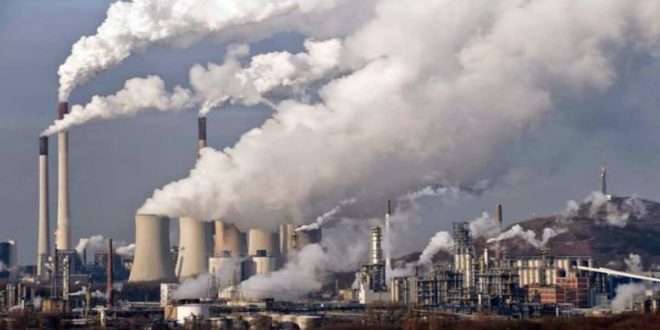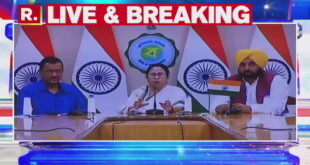According to the Central Pollution Control Board’s daily bulletin, Ghaziabad was named the “most polluted city” in the country on Friday, with an air quality index (AQI) of 321 in the very poor’ category (CPCB).
Following the execution of the graded response action plan (Grap) on October 15 this year, the city was named the “most polluted city” for the first time on October 16.
The CPCB released AQI numbers on Friday that revealed adjoining Greater Noida and Noida had AQIs of 284 and282, respectively, in the ‘bad’ category.
It also found that the principal pollutants in the district were reported at PM2.5 at all four monitoring stations: Indirapuram, Loni, Sanjay Nagar, and Vasundhara. “The high levels of pollutants in the city — PM2.5 — imply that there is a lot of traffic pollution. Stubble burning contributes 20%, and when combined with moderate wind speed, it results in reduced pollution dispersion. All of these factors have had an impact on the city’s AQI, according to Utsav Sharma, regional officer of the Uttar Pradesh pollution control board.
“According to the Grap protocols, we will now enforce steps to be taken to prevent the air quality being in the ‘very poor’ category. As directed by the CPCB, there is a ban on DG sets, and implementing agencies have been instructed to take care of it,” Sharma added.
It also found that the principal pollutants in the district were reported at PM2.5 at all four monitoring stations: Indirapuram, Loni, Sanjay Nagar, and Vasundhara. “The high levels of pollutants in the city — PM2.5 — imply that there is a lot of traffic pollution.
Stubble burning contributes 20%, and when combined with moderate wind speed, it results in reduced pollution dispersion. All of these factors have had an impact on the city’s AQI, according to Utsav Sharma, regional officer of the Uttar Pradesh pollution control board.
“As forecasted by the Safar, the AQI in the city is in ‘very poor’ category and is likely to deteriorate further during the daytime, until early Saturday. It is likely to improve marginally from Saturday evening, but will remain in the lower end of the ‘very poor’ to ‘poor’ category due to slightly improved ventilation coefficient,” said a Safar statement.
The wind direction and speed in the city are also favourable for transporting stubble burning towards Delhi, according to the report. Environmentalists claim that the AQI has been “deteriorating” even before this year’s Diwali, which falls on November 4th.
 India One News
India One News





